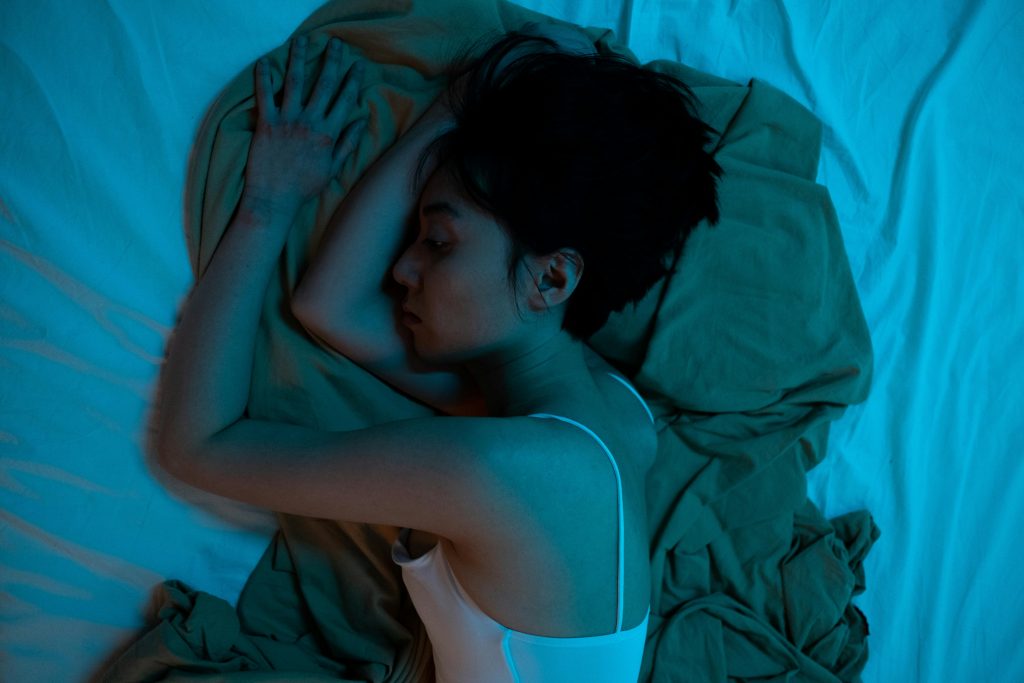You wake up. Can’t move. Can’t scream. There’s something in the room with you—a shadow figure, a demon, pure evil watching you. You’re not possessed. Your brain is glitching. Here’s why your safety system becomes your worst nightmare.
Sleep paralysis turns your brain’s protective mechanism into pure terror. Your mind awakens while your body stays locked in sleep’s safety mode, creating hallucinations so vivid they’ve shaped mythology for millennia. This isn’t supernatural—it’s neurology gone wrong.
Your Brain Paralyzes You Every Night
During REM sleep, your brain deliberately paralyzes your muscles to prevent you from acting out dreams. Called REM atonia, this system stops you from punching walls when you fight dream monsters. Usually, consciousness and paralysis never overlap.
Sometimes your mind wakes up before the paralysis lifts. You’re fully aware but completely trapped in your body. Only your eyes and breathing work. Your brain panics—if you can’t move, there must be a predator nearby. Ancient alarm systems flood you with terror while you remain helplessly frozen.
Episodes last seconds to minutes but feel eternal due to fear-induced time distortion. The paralysis always ends, but the psychological trauma lingers.
Why the Hallucinations Are Always Terrifying
Your brain exists in a hybrid state—part dreaming, part awake. Dream imagery bleeds into reality, but you believe you’re fully conscious. The visions feel more real than normal dreams.
The hallucinations follow global patterns: shadow figures, chest pressure, demon encounters, alien abductions. Your hyperactive threat detection system creates these horrors to explain why you can’t move. Evolution favors false alarms over missed dangers.
Many people develop PTSD from single episodes because the experiences feel completely real and life-threatening.
Every Culture Has Sleep Paralysis Mythology
Medieval Europe blamed incubus demons. China described ghost oppression. Japan called it being “bound by metal.” Modern alien abduction stories often describe sleep paralysis symptoms perfectly—bedroom encounters, paralysis, intense fear, sense of being examined.
The experience feels so supernatural that spiritual explanations seem logical. Understanding the science doesn’t make it less terrifying in the moment.
What Triggers Episodes
**Sleep deprivation** is the main culprit. Irregular schedules, shift work, and chronic exhaustion create REM intrusions that cause paralysis episodes.
**Stress and mental health issues** amplify risk. Anxiety disorders, PTSD, and depression disrupt sleep architecture in ways that promote episodes.
**Back sleeping** increases frequency. The position may restrict airways or affect brain oxygen. Simple fix: sleep on your side.
**Substances** like alcohol and certain medications interfere with normal sleep stages.
Prevention and Management
**Fix your sleep schedule.** Same bedtime and wake time every day, weekends included. Consistency prevents the disruptions that cause episodes.
**Reduce stress.** Whatever works—meditation, exercise, therapy. Anxious minds create anxious sleep.
**Optimize your environment.** Dark, cool room. No screens before bed. Create conditions for proper sleep stages.
**During episodes:** Focus on small movements—wiggle a toe, move a finger. Don’t try to break free entirely. Remind yourself it’s temporary and will end.
The Unexpected Upside
Some people learn to use sleep paralysis as a gateway to lucid dreaming. Once fear is replaced with understanding, the terrifying can become transcendent. Artists mine these experiences for creative material, transforming trauma into art.
Understanding brings power. You’re not a victim of supernatural forces—you’re experiencing a recognized neurological phenomenon that millions share.
When to Get Help
Frequent episodes warrant medical evaluation. Sleep paralysis can indicate underlying disorders like narcolepsy or sleep apnea. Mental health support helps when episodes create lasting anxiety about sleep.
You’re not alone, crazy, or possessed. You’re human with a human brain doing human things under stress.
Knowledge as Armor
Sleep paralysis feels supernatural because your natural brain produces supernatural-feeling experiences. The shadow figures aren’t demons—they’re dreams leaked into reality. The paralysis isn’t possession—it’s protection gone wrong.
Understanding doesn’t prevent episodes, but it prevents lasting trauma. Next time you wake frozen in fear, remember: your brain is glitching, not the universe. It will pass. It always does.
Your Experience Matters
Have you experienced sleep paralysis? What did you see? What strategies help you manage episodes?
Share this with someone who’s had unexplained nighttime terrors. They need to know they’re not alone and their experiences have scientific explanations.
Remember: your brain’s protection mechanism becomes the very terror it’s designed to prevent. Knowledge transforms supernatural horror into manageable neurology.
